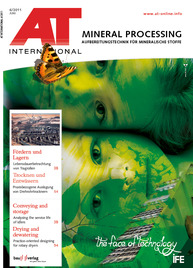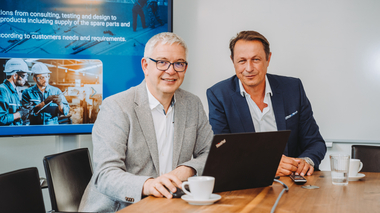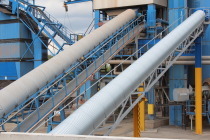Separation of dispersed solidsTheory and practice of solid-liquid separation, Karlsruhe/Germany (19.-23.09.2011
The separation of solids dispersed in suspensions on centrifuges and filters is playing an important, and sometimes crucial, role in a large number of production processes in a wide range of sectors. These include the chemicals and pharmaceuticals industries, food technology, biotechnology, water treatment as well as the basic and mineral processing industries. The rising requirements for environmental protection, high costs for labour and energy and increased demands on account of new products have given key impetus for the ongoing further development of processes and machines for mechanical solid-liquid separation. New objectives have also evolved for the research of the basic physical processes. The processes and machines available today vary widely, and only precise knowledge of the equipment possibilities available guarantees operators to find the most economic solution to their problems. The course (in German only) is designed for employees of equipment manufacturers, equipment operators, R&D departments, authorities and engineering offices. Previous knowledge of solid-liquid separation is useful, but not a precondition.
The course covers basic theory, but also points out the limitations of simplifying models. Empirical methods for design and scale-up are discussed in detail and usefully supplemented with theory. Particular focus is on the understanding of the interaction between the product properties of the suspensions to be separated and the design parameters and settings of separating equipment and machines. Probably unique in this combination, the course provides opportunities for course attendees to participate in demonstrations on pilot-scale machines and therefore to acquire insights into the machine technology of separating equipment. The evening functions provide additional opportunities for interdisciplinary exchange, for the discussion of separation problems, and for the presentation of state-of-the-art problem solutions. Building on the findings of research programmes and lectures at the Institute on the one hand and the course instructors’ many years of industrial experience in design, research, development and project planning on the other hand, this course optimally brings together theory and field experience.
The course is organized by the Institute of Mechanical Process Engineering and Mechanics, Karlsruhe Institute of Technology. Programme and registration form are available for download at www.gvt.org (here under: Hochschulkurse).



